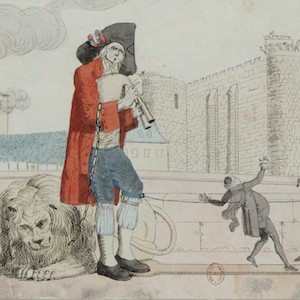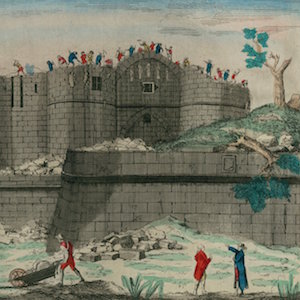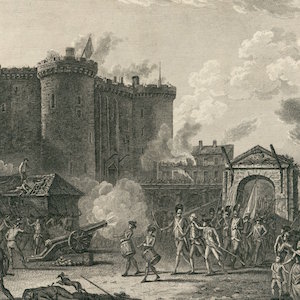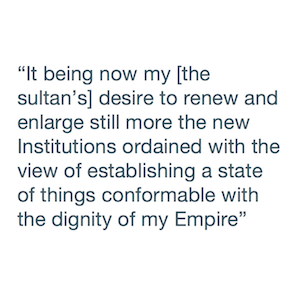Government

The Day of 21 July 1789
More common than clashes by workers against employers were protests over the rising price of bread. This color drawing depicts events at the City Hall of Strasbourg on 21 July 1789.

Farewell Bastille
This hand–colored engraving equates the taking of the Bastille with the rise of the Third Estate against the clergy and nobility. A commoner in a black hat sporting a tricolor cockade plays the bagpipe triumphantly over the fallen lion of the absolutist monarchy.

Demolition of the Bastille
This watercolor painting illustrates the "demolition" of what the text refers to as the "horrible prison" of the Bastille. As workmen tear down the spires on the roof, ordinary people rip stones off the base.

Woman with Lenin/Stalin Flag
Articles and images published in Soviet newspapers on March 8, International Communist Woman’s Day, provide the most obvious examples of how women were used as symbols in a propaganda campaign.

Taking of the Bastille
The "bravery of the citizens united against" the royal army, as the text suggests, enabled them to conquer in four hours a fortress that had defeated invasions since 1368.

Taking of the Bastille
This painting emphasizes the populace’s participation in the storming of the Bastille, showing the urban population fighting under a red banner with muskets, swords, and pikes against the royal soldiers.

The Third Incident of 14 July 1789
This engraving from the Berthault series depicts Stanislas Maillard bravely climbing on a plank over the dry moat surrounding the fortress to accept from one of the soldiers Launay’s "capitulation" of the Bastille.

Painting of Imelda Marcos, Philippine First Lady
Politicians are astute experts on the symbols and meaning of dress as part of self-representation. For women, the politics of dress are highly significant.

Analyzing Official Documents
The modules in Methods present case studies that demonstrate how scholars interpret different kinds of historical evidence in world history. In the video below, historian Dina Khoury analyzes two official proclamations by the government of the Ottoman Empire.

An Ottoman “Bill of Rights”
This is an excerpt from an official proclamations by the government of the Ottoman Empire. It reflects an understanding by the ruling elites that some administrative reform was absolutely necessary to protect the state from further decay.